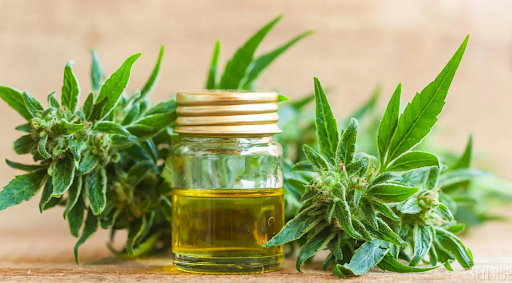CBD, or cannabinoid-rich hemp oil, is gaining popularity as a fast-acting remedy with numerous health-boosting benefits. Named after cannabis sativa, the plant that contains cannabinoid-1 (or delta-9-tetrahydrocannabinol), the cannabis plant species from which hemp cannabis is derived, this hemp oil is extracted from the seeds of hemp. It’s naturally high in cbd oil, the non-psychoactive substance found in cannabis that has numerous benefits and wide clinical applications.
How to identify high-quality CBD oil?
There are a number of factors that can help you identify high-quality CBD oil, including source material, third-party testing, and product potency. When purchasing your high-quality CBD oil, look for products that are from organically grown hemp plants. These plants are cultivated to contain little to no THC and are free of pesticides. Additionally, high-quality CBD oil should be derived from lab-tested hemp plants. This way you can ensure the oil is free of harmful pesticides and contaminants.
A full vacuum should be used when extracting CBD from the plant material. This ensures that there are no traces of solvents left in the end product. High-quality CBD oil should be isolated from hemp biomass before being converted into delta-8 THC. Blood tests can be used to identify delta-8 THC up to two days after consumption.
What are the risks associated with using CBD oil?
– The side effects of CBD use can include changes in appetite, nausea, and mood. These effects are generally mild and tend to go away after the medication is stopped.
– Research suggests that CBD may be of benefit to individuals with epilepsy, multiple sclerosis, and chronic pain. However, there is not enough evidence to support its use for these conditions.
– There is some evidence that cannabis – specifically high-CBD cannabis- can help with anxiety disorders, but it’s not clear if this applies to CBD.
– It’s important to note that CBD products are not approved by the FDA and have not undergone rigorous testing to determine their safety. As a result, consumers may not be aware of the potential side effects or complications from using these products.
Is CBD oil good for anxiety?
CBD oil is good for anxiety. Studies have found that CBD oil can help reduce anxiety. This could be due to its effects on the brain and body.
In particular, studies have shown that CBD oil may be effective in reducing the physical symptoms of anxiety, such as an increased heart rate and sweating. Clinical trials have also found that CBD may be effective in treating social anxiety. This suggests that it could help people feel less shy and less likely to experience negative emotions when interacting with others. Additionally, some people with social anxiety have found relief from using CBD oil.
However, it’s important to note that not all individuals will benefit from using CBD oil for anxiety. Each person must discuss the benefits and risks of using CBD with a doctor before making a decision.
Is CBD oil a natural remedy for pain?
CBD oil is a natural remedy for pain. It’s made from organically grown hemp and is formulated to bring relaxation, rest, recovery, and well-being. Many people use it for chronic pain and inflammation due to its soothing effects. Some people claim that it helps reduce chronic pain and inflammation without causing drowsiness or fatigue.
Another benefit of using CBD oil is that it may be effective in treating certain types of pain, such as chronic pain and arthritis. However, it’s important to do your research before using it and discuss your options with a doctor or certified medical professional.
Is CBD oil safe for children to use?
CBD oil is safe for children to use. The hemp plant is a safe and natural supplement. It contains terpenes, flavonoids, and other nutrients that are beneficial for general health and can help with moods, concentration, and more. As with any supplement, parents should be aware of the potential side effects before giving their child CBD oil. Possible side effects include nausea, diarrhea, fatigue, and vomiting. These effects are common among people who consume large amounts of CBD oil and would disappear if the child stopped taking it.
A saliva test can detect THC-active ingredients of cannabis up to 72 hours after consumption. This test can be used to find out if a person has been consuming cannabis or cannabinoid-containing products. This can help parents monitor their children’s consumption of these products to ensure they’re safe for them to use.
Conclusion
There are many myths surrounding the effects of cannabis and CBD oil. It is essential to understand that there is no standard or universal method of consuming cannabis or hemp-derived products. It is best to consult a medical professional before experimenting with cannabis-based products. There are a variety of factors that can influence your response to cannabis-based products, including your genetics, health history, lifestyle, and much more. However, using cannabis-based products as directed by a medical professional should not cause any long-term harm. They are generally considered safe when used properly and appropriately.



